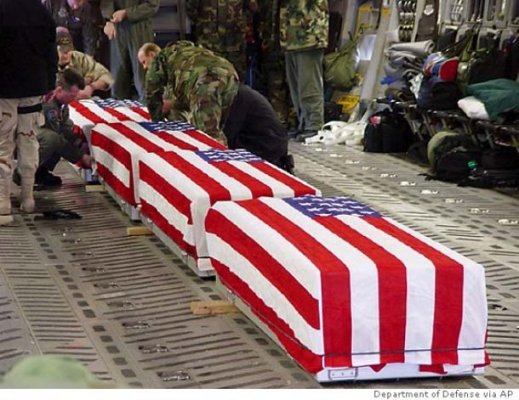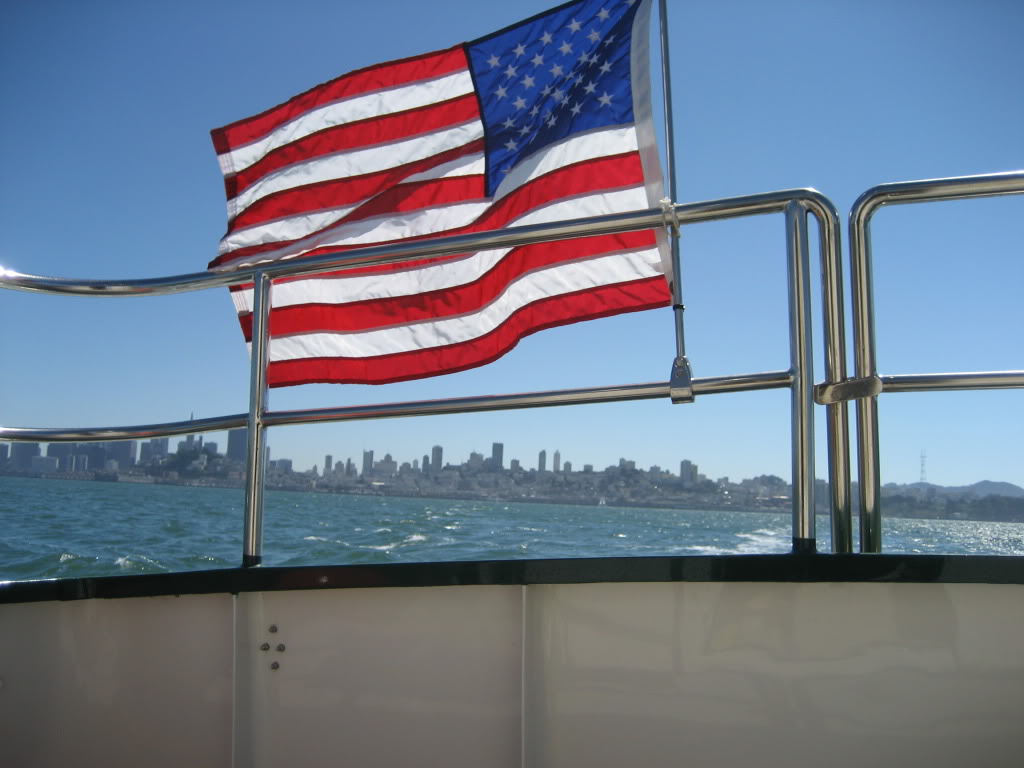For those of us who served in the military, it's more than "silly stuff." It represents what we fought & died for.
Interestingly enough, during the course of my several years of interviewing well over a hundred WWII PT vets for the book I've been working on, a couple of the questions I always asked them was why they had joined up and, once they were in a combat theatre carrying out missions, if the reasons they joined up were still something they thought about. The answers really surprised me, particularly as I had grown up in a very military-oriented state (Hawaii) and had, along with all the rest of the state's high-school sophomore and junior boys, been in ROTC, which in Hawaii was almost like being in the military, at least for a few hours every week.
The PT vets, all of whom were in their late teens or very early 20s when they joined the Navy, said the number one reason they joined was because their buddies were joining. It was a peer pressure sort of thing Another reason given was that it "just seemed to be the thing to do." Some of them from more rural areas said it represented a way to get out of where they lived. Some said it sounded exciting. Nowhere in my interview transcripts did any of them say they joined to protect America or fight for democracy or any of the patriotic reasons so often given in the movies.
So, next question. When they were in the combat theatres, and particularly when they were seeing action on a mission, what did they think about? The answer was almost always the same. I'm paraphrasing, but it was, "The only thing I thought or cared about was staying alive and keeping my fellow crew members alive."
I would then ask them if they thought about the bigger purpose, the fight to preserve freedom, the country, and so forth. Almost every one of them said no. Not while they were actually in the war. The patriotic reasons, they said, came much later, when they were much older and were far removed from the recent memories of what they'd been through.
I found this fairly fascinating as I'd been brought up hearing all the patriotic stuff about fighting in WWII. As a result of these interviews, the real attitude, as described by the PT crewmen, has become a major factor in the story I'm writing.
As it turns out, I got the same kinds of answers from the many B-29 crewmen I interviewed when I produced and directed a half-hour documentary commemorating the 50th anniversary of that plane.
And when I've interviewed Viet Nam vets for various projects, the answers were ever farther removed from patriotic platitudes and sayings. The Viet Nam guys I've talked to, particularly the ground soldiers who saw action in the DMZ and other "hot" areas, said they hadn't wanted to go to Viet Nam at all, while they were there they were more pissed off at America for sending them there than any thoughts of defending freedom and stuff, and that the ONLY thing that made it tolerable--- this was from some of the DMZ vets I talked to--- was the knowledge that all the other guys they were with were every bit as miserable and wet and fed up as they were. Misery loves company, they told me, and in Viet Nam, it had plenty of company.
They did their jobs because for the most part they were honorable men and saw it as a moral duty to themselves to see a job through. But they weren't doing them because of any slogans or flags or patriotic speeches.
I've never talked to anyone (in this depth) who served in Korea, so I have no picture about how the soldiers felt about things over there. My guess it was the same but I have no actual statements to back that up.
So it seems all the patriotic stuff about freedom and democracy and the flag and whatnot really didn't mean much to the guys actually fighting the war(s). Not at the time, anyway. Much later, sure.
So after hearing all this over the course of a lot of years it's pretty hard for me to get all worked up about the American flag. It's just a symbol. It's a symbol of something great, no question. But I regard it as no more than a logo, and not a particularly well designed one at that from a graphics design standpoint.
So we don't fly it (usually) on our boat, because it says nothing about what I feel is the true value of living in this country and the value this country brings to the world. It's just a colored rectangle of cloth, more likely than not these days made in China. I'm far more interested in actions than I am in symbols. What the PT and B-29 guys did was amazing. I doubt anyone in the US today could even begin to take on what these guys did, let alone persevere and win. But they didn't do it because of a flag, they did it because of the kind of character each one of them possessed.



